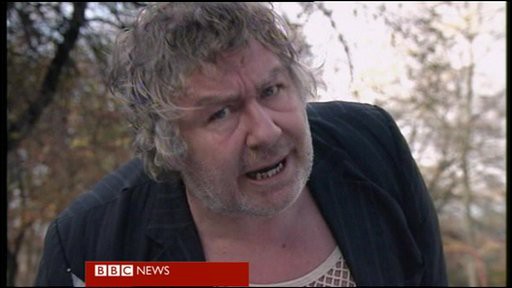Here’s the thing many people misunderstand about Scotland’s referendum on independence: it isn’t really very much to do with England. When someone starts chuntering on about Braveheart and Bannockburn you know you’re listening to a fruitcake. This is true whether the fruitcake is Scots or English. At least the latter have the excuse of ignorance, I guess.
Anyway, the point is that as much as we may occasionally dislike or, more frequently, be irritated by the English they’re not the problem. The people we really hate are our fellow Scots. And with good reason. I mean, look at us. The worst part of losing the referendum (whichever side you favour) is having to share a country with the winners. I spy much unhappiness.
So I enjoyed Iain Macwhirter’s column in today’s Herald. I like Macwhirter, even if he is a pillar of the Scottish establishment. His columns are always rewarding. Even when, as today, they are hysterical.
You see, the problem with this independence thing is that the Scots just might not be up for it. They are too cowed, too timid, too poor, too damn apathetic so seize the moment history has, albeit accidentally, given them. Too wee and too stupid too. If only we could replace them with another people.
Macwhirter has been in Norway and, naturally, likes what he sees there. Which leads him to ask an awkward question: what if the Norwegians are simply better people than the Scots?
Lest you think I exaggerate, here’s what Macwhirter asks:
[H]ere’s a thought: what if Scots prefer being subsidy junkies to living the Norwegian way?
Building an independent country, like building a business, is hard work. It requires a stubborn confidence and a self-reliance that Scots may have lost after generations of living in grey housing estates.
If Scotland could become Norway overnight, I suspect there would be a landslide for Yes in September. But most Scots are realists and know that being Norwegian isn’t that easy. I’m not entirely sure we have the will for this kind of thing any more – if we ever had it.
If Yes loses in September it won’t be the cause that’s failed, it will be you. You’ll have let yourself down, for sure, but worse you’ll have let your country down.
But what else should we expect from a nation of layabouts? I mean:
Norwegians famously have rather small town attitudes, because there are lots of small towns. They are communitarian and disciplined because they had to be to survive in an often hostile environment. Scots prefer cities and pubs and holidays in Spain.
Feel the burn, all you soft, sloppy, slobbish urban Scots addicted to booze and cheap foreign sunshine. Your lives are far too comfortable. Mr Macwhirter concludes, cheerily:
I don’t want to contribute to our national vice of negativity but the question in September isn’t really about the economics of monetary union or whether an independent Scotland would be in deficit or surplus.
It is about whether Scots have the determination and self-confidence to strike out on their own and take charge of their own affairs; or whether they would prefer a managed decline and an an apparently easier life, consoled by the cynicism and self-loathing showcased by the Unionist “Just Say Naw” campaign.
I’m glad he didn’t want to contribute to the national vice of negativity [sic] because much more of this and you could be forgiven for thinking Mr Macwhirter is guilty of Talking Scotland Down.
The Confidence Fairy is, of course, cousin to the Willpower Wisp. In each instance, if we only believed enough everything would be better. Just as an American president’s failings are routinely ascribed to a lack of presidential willpower, so a No vote in September can only be explained by a craven lack of confidence.
It’s a theory.
On the other hand, if you convince yourself people have no good reasons for voting in ways you find disagreeable or sub-optimal it may be that the only person you’re really fooling is yourself.
Still, this kind of one-eyed analysis is telling. It is what, deep down, many Yes voters (nationalists or not!) really think. It reflects a kind of epistemic closure. There are no good or even vaguely plausible reasons for thinking differently; anyone who does so can be cheerily dismissed or presumed to be arguing in bad faith.
OK then. There are, of course, other echoes. A No vote is a vote for ‘managed decline’? That sounds, well it sounds rather like the kind of thing Margaret Thatcher was saying about Labour in the late 1970s. Rhetorically, if in few other senses, the nationalists have something in common with the Iron Lady.
Except Scotland is not in decline. Three-quarters of Scots are amply happy with their lives. Independence is only feasible because Scotland is, as every sensible person agrees, broadly-speaking a successful, wealthy place. The question is less one of feasibility than of necessity.
And if we must talk about cynicism then let’s consider the cynicism of a kind of politics that thinks a single policy choice will by itself make everything better. The cynicism of a worldview that presumes opposition is motivated by self-loathing or some kind of false consciousness that causes people to vote against their own interest.
Not just the cynicism, frankly, but the arrogance too. It’s a Caledonian version of the smugness that too often characterises Democratic attitudes towards those benighted [sic] parts of the United States that continue to vote Republican. They have What’s the Matter with Kansas? and we have What’s the Matter with Paisley?
Scotland: great country, shame about the people eh?
[There’s plenty more rot in Mr Macwhirter’s splendidly enjoyable – and revealing column – but that’s fodder for a different post.]







Comments